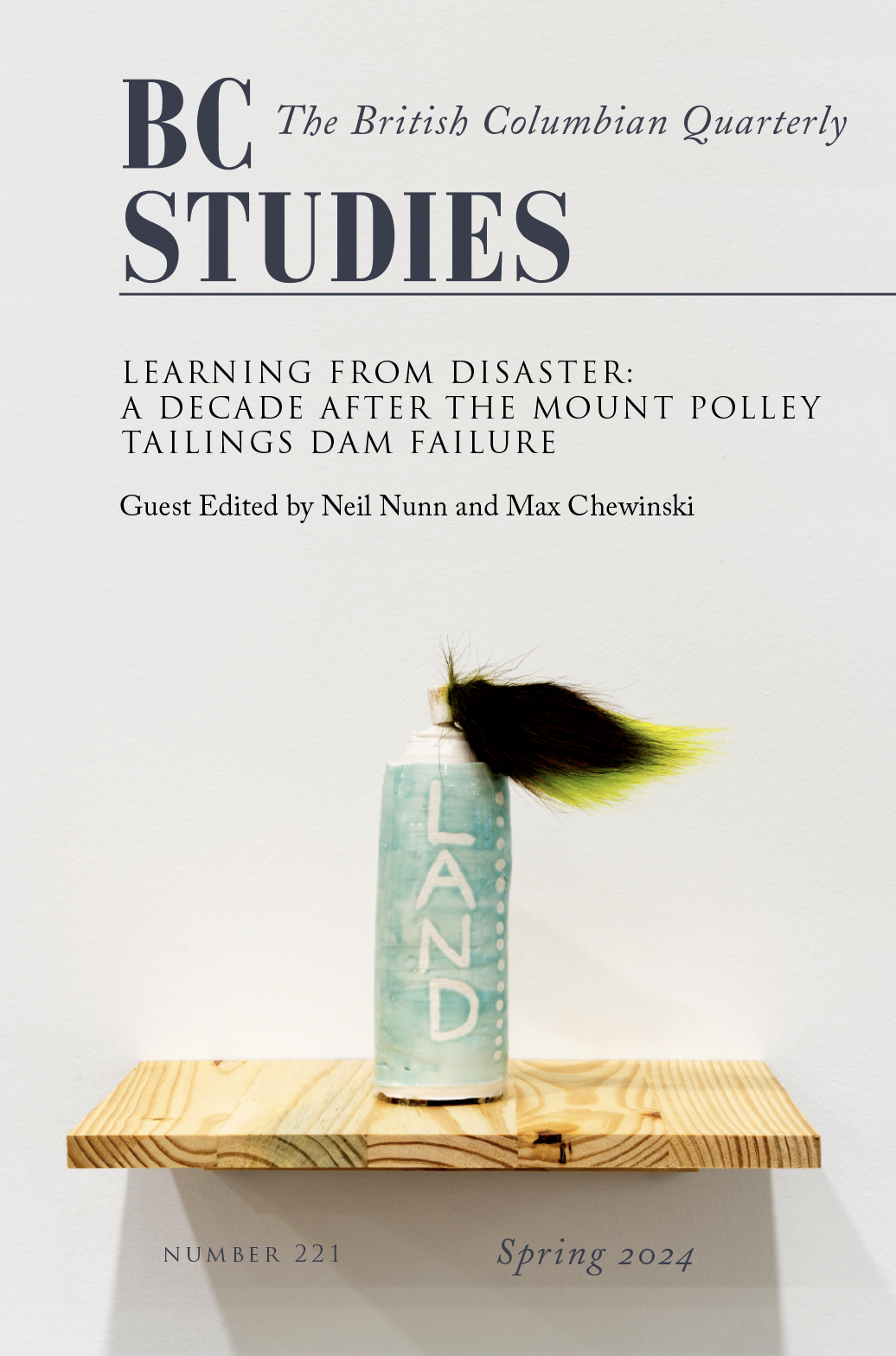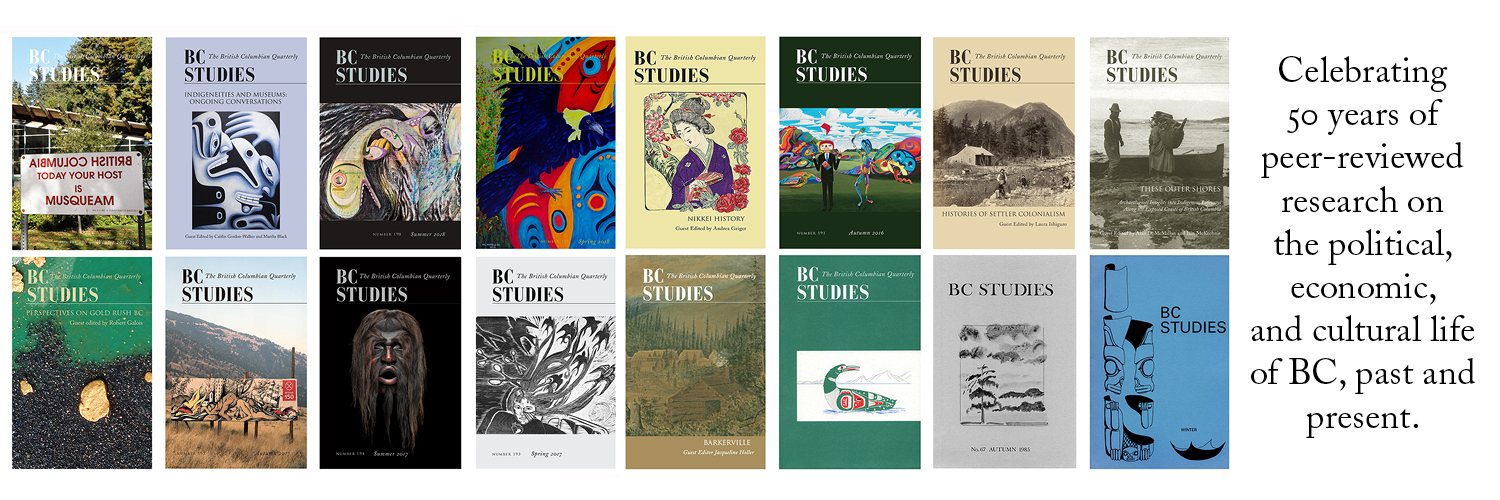"You think I will bring my children here?”
The Mount Polley Mine Disaster as a Necropolitical Human Rights Environmental Disaster
DOI:
https://doi.org/10.14288/bcs.no221.198582Keywords:
mining, Mount Polley Mine, disaster response, human geography, pollution controlAbstract
This essay analyzes the Mt Polley Mining disaster of 2014 as a human rights event. This article contextualizes the spill as a colonial harm in line with a range of colonial acts of violence against Indigenous Peoples and their lands and waters. The authors consider how the spill fits with an understanding of Canada as a colonial necropolitical state that enforces boundaried zones of protection and exploitation within state borders.
Downloads
Published
2024-07-30



